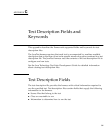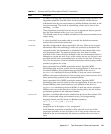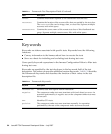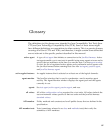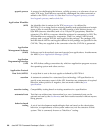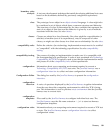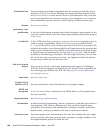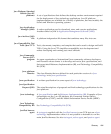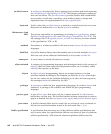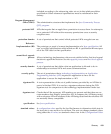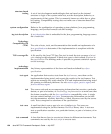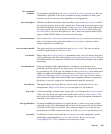
98 Java ME TCK Framework Developer’s Guide • July 2007
appeals process A process for challenging the fairness, validity, accuracy, or relevance of one or
more TCK tests. Tests that are successfully challenged are either corrected or
added to the TCK’s exclude list. See also first-level appeals process, second-
level appeals process, and exclude list.
Application IDentifier
(AID) An identifier that is unique in the TCK namespace. As defined by
ISO 7816-5, it is a string used to uniquely identify card applications and certain
types of files in card file systems. An AID consists of two distinct pieces: a 5-
byte RID (resource identifier) and a 0 to 11-byte PIX (proprietary identifier
extension). The RID is a resource identifier assigned to companies by ISO. The
PIX identifiers are assigned by companies. There is a unique AID for each
package and a unique AID for each applet in the package. The package AID
and the default AID for each applet defined in the package are specified in the
CAP file. They are supplied to the converter when the CAP file is generated.
Application
Management Software
(AMS) Software used to download, store and execute Java applications. Another name
for AMS is Java Application Manager (JAM).
Application
Programming Interface
(API) An API defines calling conventions by which an application program accesses
the operating system and other services.
Application Protocol
Data Unit (APDU) A script that is sent to the test applet as defined by ISO 7816-4.
assertion A statement contained in a structured Java technology API specification to
specify some necessary aspect of the API. Assertions are statements of required
behavior, either positive or negative, that are made within the Java
specification.
assertion testing Compatibility testing based on testing assertions in a specification.
automated tests Test that run without any intervention by a user. Automated tests can be
queued and run by the test harness and their results recorded without anyone
being present.
behavior-based
testing A set of test development methodologies that are based on the description,
behavior, or requirements of the system under test, not the structure of that
system. This is commonly known as “black-box” testing.




